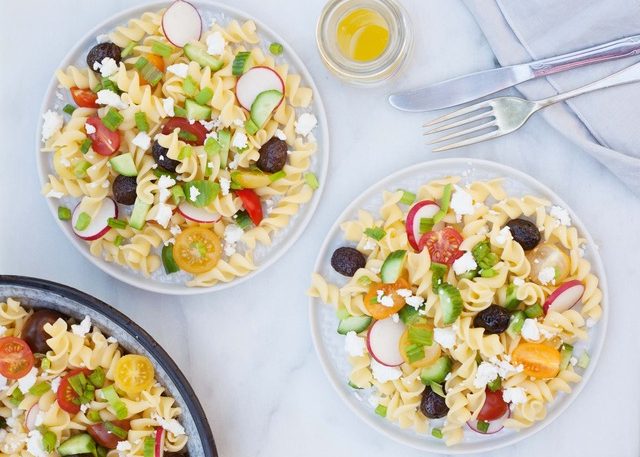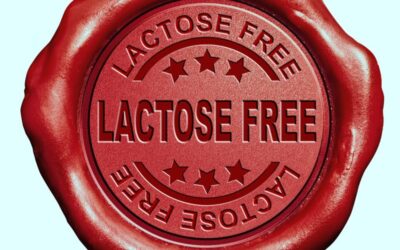For millions experiencing the uncomfortable rollercoaster of IBS, the low-FODMAP diet can be a game-changer. By minimizing fermentable oligosaccharides, disaccharides, monosaccharides and polyols (FODMAPs), IBS symptoms like bloating, wind, and cramping improve in over 75% of sufferers. But navigating this dietary shift isn’t always smooth sailing. Let’s untangle some common mistakes on the low FODMAP diet that can improve your odds of reaping the full benefits of a low-FODMAP journey to comfort. Take a look at my other blogs for more information on IBS matters.
Common mistakes – low FODMAP diet tips
1. Elimination overdrive:
Ditching all high-FODMAP foods in one fell swoop may not be the best option. Eliminating too much fibre (often bundled with FODMAPs) can lead to constipation and may mean that you miss out on key nutrients, which can create deficiencies. Remember, the goal is to identify your individual triggers, by targeted elimination and reintroduction
2. Portion distortion:
Just because a food is low-FODMAP doesn’t mean “eat it all day, every day.” Overindulging in even low-FODMAP foods can push your personal tolerance threshold into symptom territory. Try to stick to recommended serving sizes and remember, variety is key to a healthy gut
3. Hidden FODMAP foes:
They lurk in seemingly innocent places – FODMAPs disguised as ingredients. From onion and garlic powder in pre-prepared sauces to fructose in honey or agave nectar, reading labels like a hawk is crucial. Don’t let pre-packaged convenience trip you up! If something tastes sweet, but has ‘no added sugar’ or claims ‘natural ingredients’ beware!
4. Reintroduction roadblock:
Skipping the reintroduction phase is a common mistake. After the elimination phase, reintroducing high-FODMAP foods helps you pinpoint your triggers and customize your diet for long-term success. This is the important phase, so embrace the detective work; it’s the key to unlocking IBS freedom
5. Gluten misunderstanding:
Some grains contain FODMAPs, but this is not synonymous with gluten. Unless you have coeliac disease or gluten sensitivity, some grains can still be enjoyed in moderation on a low-FODMAP diet. No need to unnecessarily restrict your options!
6. Social situations:
Dining out doesn’t have to be a FODMAP fiasco. Communicate your dietary needs clearly to restaurants, opt for simple preparations and choose low-FODMAP side dishes. Don’t let IBS hold you back from enjoying social events
7. Patience deficit:
It takes time to adjust to a low FODMAP regime, but experiment and find what works best for your gut. Be patient with yourself, celebrate small victories and don’t get discouraged by occasional setbacks
8. Emotional effects:
Stress and anxiety can exacerbate IBS symptoms. At such times, it’s tempting to reach for comfort foods, but be mindful of hidden FODMAPs. Prioritize stress management techniques like yoga, meditation or spending time in nature. Try some of the plethora of Apps available such as ‘Headspace‘. Your gut will thank you
9. Information overload:
With so much conflicting information available, it’s easy to get lost in the FODMAP maze. Stick to credible sources like an IBS Dietitian trained in FODMAPs, Monash University’s FODMAP Diet app, or reputable websites like the Monash Fodmap blog. Avoid the temptation to become a self-proclaimed FODMAP detective without proper guidance
10. The “all-or-nothing” trap:
Don’t beat yourself up over occasional slip-ups or social situations where low-FODMAP options are limited. Focus on progress, not perfection, and remember, small, consistent changes are the key to long-term success
IBS and low FODMAP – can a dietitian help?
In the UK, ~1 in 5 people suffer from IBS symptoms, so you’re not alone. Restricting the diet without professional help can lead to nutritional deficiencies, especially when excluding whole food groups. This also makes social situations difficult and can worsen mental health. The low FODMAP diet is an efficient, research-based way of identifying food triggers. It’s tricky to do alone though, so should always be supported with the skills and knowledge of an IBS Dietitian trained in FODMAPs. An IBS dietitian will provide practical ways to help fit the low FODMAP diet into your lifestyle and ensure that you still get a balanced diet. I’m an IBS Dietitian based in Cardiff, but work across the UK. I offer a free initial telephone consultation, so why not arrange a call today.
Conclusion
When you have IBS, the low FODMAP diet may seem like a long-term sentence, but it’s a means to guiding you towards improved IBS comfort. By avoiding these common mistakes on the low FODMAP diet and embracing a personalized approach, you can navigate this journey with confidence and unlock a world of gut-friendly possibilities. Remember, knowledge is power, and with it, you can transform IBS from a foe into a friendly fellow traveller on your path to digestive harmony.
Disclaimer: This blog is for information purposes only and does not substitute for professional medical advice. Please consult your healthcare provider for personalised diagnosis and treatment of IBS.




